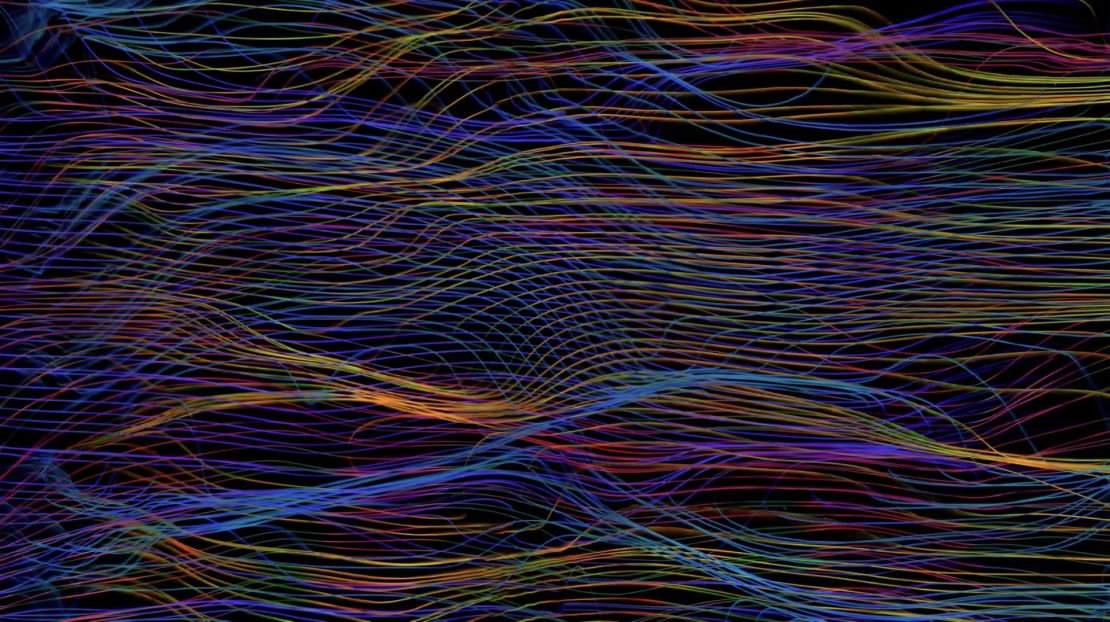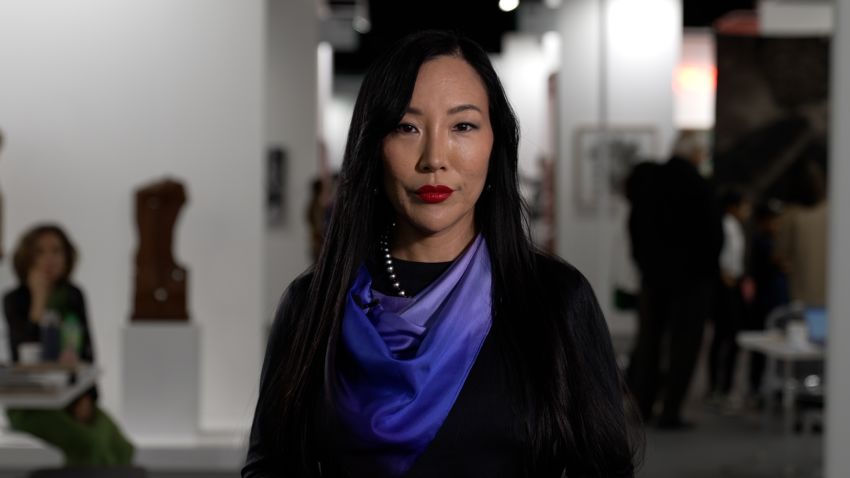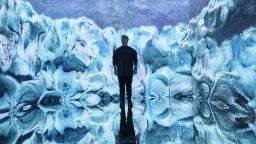Editor’s Note: This CNN series is, or was, sponsored by the country it highlights. CNN retains full editorial control over subject matter, reporting and frequency of the articles and videos within the sponsorship, in compliance with our policy.
Across a large canvas, vibrant colored lines pulse and weave. Yet the canvas itself is not cloth, but rather a screen; the lines are not brushstrokes but real-time human heartbeats, captured via artificial intelligence (AI).
The installation is called “Heart Space,” and it is the latest work by Canadian Korean contemporary artist Krista Kim, merging “art, technology and science.” A total of 3,526 individual heartbeats were captured and showcased in the piece.
Kim, the metaverse editor for Vogue Singapore, is also the artist behind the record-setting “Mars House,” a fully virtual home that sold for more than $500,000 during the NFT craze in 2021.
Commissioned by Swiss banking group Julius Baer as part of its global artist program, “Heart Space” was on display to visitors at the annual Art Dubai fair earlier this month. CNN spoke to Kim there about the project, and what she sees as the future of AI and art.
This interview has been edited and condensed for clarity.
CNN: Introduce us to “Heart Space.”
Krista Kim: “Heart Space” is the very first biometric AI, generative art installation that is collaborative. What we’re doing is we’re using the power of AI to read your EKG [electrocardiogram, which shows a heart’s electrical activity] and extract a unique algorithm. Everybody has a unique heartbeat, like a thumbprint. And what we do with that information is we create unique waveforms and color. And on the screen you have four inputs, four people at a time, co-creating a beautiful immersive artwork with their heartbeat. And this is the first in history. We’re very proud and very pleased with the installation.

CNN: This is all related to the ever-evolving revolution of AI and tech. How do you see it accelerating in the art world as well?
Krista Kim: AI is going to infiltrate and revolutionize every aspect of our lives. Art is definitely not going to be removed from that experience. Art will be directly influenced, especially when you have automatic general intelligence that’s going to happen within three years. There’s a lot of resistance against AI right now because it’s a brand-new technology and a lot of artists are asking themselves, “isn’t it better to use our hands or to create traditional art versus AI? Who [possibly] is the creator of the art? What about authorship? What about [intellectual property]?”
These are very valid questions and yes, it is a brand-new technology and the most revolutionary, frankly, in the future. We’re going to look back at this time in a hundred years and say that there’s art before AI and art after AI. And I think what we need to do as artists is recognize that it’s important for us to engage with this new technology. We are the ones that humanize it. We are the ones that ask the right questions, that really question the technology and how it serves us, how it harms, what are the effects of the technology on us?
I think these are valid questions that are artistically enhanced. It’s a process, it’s a dialogue. And we’re only in the beginning, so I don’t know the answers, but we are finding them out and this is just the very first initial steps in the nascent technology.
CNN: As a renowned international artist, what are your views about the contemporary art emerging from this region, and the role of AI?
Krista Kim: I believe that art is going to experience incredible evolutions with the advent of AI and “Heart Space” is just the beginning. The reason why is because we’re able to use biometrics and communication, interspecies communication. I mean the possibilities of especially bringing people together and having a sense of oneness is a whole new paradigm shift.
And our relationship with technology should sort of be enhanced in terms of the humanity with each other and that is exactly what we should be striving for. And as artists, we should be trying to build more momentum for.






